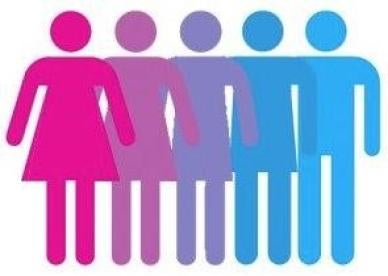The Obama Administration was dealt a blow in its efforts to expand legal protections for transgender individuals relating to the receipt of health care services and health insurance under the Patient Protection and Affordable Care Act (“ACA”). Judge Reed O’Connor of the Northern District of Texas has issued a nationwide preliminary injunction that enjoins the U.S. Department of Health and Human Services (“HHS”) from enforcing protections that prohibit discrimination on the basis of gender identity or termination of pregnancy. Franciscan Alliance, Inc. v. Burwell, No. 7:16-cv-00108-O (N.D. Tex. Dec. 31, 2016).
Section 1557 of ACA
Section 1557 of the ACA prohibits health programs and activities that receive federal financial assistance from discriminating on the basis of age, color, race, sex, national origin, or disability.
In 2016, HHS issued a final rule implementing Section 1557 as it relates to “covered entities,” i.e., those that operate health plans and programs that receive funding from or through HHS (the “HHS rule”). The HHS rule prohibits discrimination on the basis of sex, which HHS determined includes discrimination on the basis of gender identity or on the basis of termination of pregnancy.
Based on the premise that gender identity discrimination is sex discrimination, the HHS rule includes protections for transgender individuals, such as the requirement that health care providers treat people consistent with their gender identity and not deny medically necessary procedures based on an individual’s gender identity. Furthermore, the HHS rule requires health insurance policies and certain self-insured employee health insurance plans to remove any categorical exclusions for services related to gender transition.
The HHS rule generally became effective on July 18, 2016. However, the notice requirements took effect on October 16, 2016, and changes to employee health plans were not required until the first day of the first plan year beginning on or after January 1, 2017.
(For more information on the HHS rule, see Final Rule Issued on ACA’s Non-Discrimination Provision for Federally Funded Programs, and January 1st is Quickly Approaching – Have You Reviewed Your Health Plan for Section 1557 Compliance?)
The Case
In Franciscan Alliance, eight states and three medical providers sought an injunction barring enforcement of the HHS rule as it relates to discrimination on the basis of gender identity or termination of pregnancy. The plaintiffs argued the HHS rule will require them to perform and provide insurance coverage for gender transitions and abortions, regardless of their contrary religious beliefs or medical judgment. (Two other cases challenging the HHS rule on similar grounds are pending in North Dakota: North Dakota v. Burwell, No. 3:16-cv-00386-RRE-ARS (D. N.D. filed Nov. 7, 2016), and Catholic Benefits Ass’n v. Burwell, No. 3:16-cv-00432-RRE-ARS (D. N.D. filed Dec. 28, 2016).)
Judge O’Connor granted the injunction on the basis, among other things, that Section 1557 and the HHS rule incorporate the provisions of existing sex discrimination law under Title IX, which relates only to the “binary, biological differences between males and females.” This would not include gender identity. (Title IX prohibits discrimination on the basis of sex in any federally funded education program or activity.) Furthermore, Judge O’Connor ruled the plaintiffs showed a substantial likelihood of success on their claims that the challenged provisions of the HHS rule violate the Religious Freedom Restoration Act.
However, the injunction does not enjoin the HHS rule altogether. All of the notice, accommodation and language service requirements still apply. Furthermore, all of the nondiscrimination protections afforded to people on the basis of race, color, national origin, age, disability, and sex (other than those based on gender identity or termination of pregnancy) still apply.
HHS expressed its disappointment with the ruling, but has not indicated whether it will appeal Judge O’Connor’s ruling. The upcoming change in administration and President-elect Donald Trump’s statements about repealing the ACA cast doubt on that possibility. However, the ACLU has filed a motion, which is currently pending, to intervene and stay the injunction pending appeal.
Implications
The HHS rule has already taken effect. Some covered entities and employers may be tempted to remove the transgender protections they adopted pursuant to the HHS rule. However, there are many reasons that covered entities and employers should be wary of making abrupt changes at this point.
First, the injunction relates only to HHS’s ability to enforce the specific provisions of the HHS rule that are enjoined. It does not prevent individuals from pursuing a private right of action under Section 1557. Another judge might disagree with Franciscan Alliance and rule that Section 1557 provides protections based on gender identity or termination of pregnancy. In other words, this case does not preclude all potential litigation.
Second, the injunction does not prevent other government agencies from enforcing their own nondiscrimination rules or other statutes. For instance, the Equal Employment Opportunity Commission “interprets and enforces Title VII’s prohibition of sex discrimination as forbidding any employment discrimination based on gender identity or sexual orientation.” Despite Judge O’Connor’s injunction, the EEOC previously had investigated charges of discrimination arising solely out of a categorical exclusion for transgender medical benefits. It remains to be seen whether the EEOC will continue to act against employers that fail to remove categorical exclusions for gender transition services from their health plans.
Third, it also remains to be seen whether the case will be appealed by HHS or whether the ACLU will be allowed to appeal. If the case is successfully appealed, then HHS can enforce the portions of the HHS rule that provide protections to transgender individuals. Covered entities then would need to implement those protections quickly. Furthermore, if the injunction is stayed pending appeal per the ACLU’s request, HHS would be able to enforce the enjoined portions of the HHS rule while the appeal is ongoing.





 i
i


